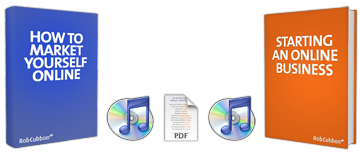
Google estimates there are over 1 trillion (as in 1,000,000,000,000) unique web pages on the web and there are an estimated 7.3 million new ones added every day – but don’t let these figures overwhelm you, you found me. My website was set up with only a few dollars and a bit of common sense. And, if I can create a valuable online resource from nothing, so can you!
Websites need authority and reputation and that is built up over months and years. So every second you spend thinking about creating a website is an authority-gathering second wasted.
Do it now!
It is almost impossible to make “bad” or “wrong” decisions with websites as they can be corrected.
On the web, content is separated from design. So if you think you have made a mistake with the look of the site, it is possible to change it without touching the content. The content can be held in a database which can be moved from webserver to webserver, from web address to web address, from Content Management System to Content Management System.

1. Purpose/Niche & Keyword research
The first thing you must decide upon (or, most likely, you have decided already) is it’s purpose. What do you want your website to do for its visitors and what do you want its visitors to do with the website?
For any website to succeed, it is critical to know the audience and the means to reach them. However, even if you think you know your website’s purpose and audience, research is a must! Get yourself over to Google Keyword Research, and key in the words you would use to describe the website’s purpose or niche. Here you will find how many times a month these words are used in Google searches and suggestions for other terms you could use.
Say you want to build a website about “nicotine cessation” – you will find that these keywords have 2,000 searches on Google every month but that “giving up smoking” has 500,000! Five seconds of keyword research has made your new website 250 times more easy to find!
These keywords should now be put in titles, headings, subtitles and various other places in your website. And, if possible, in the web address…

2. Register URL / Web address
[Many of the following links are affiliate links so, if you click through to the following sites and make a purchase I may receive a commission. If you’re not happy about that, simply google these companies and you’ll still pay the same amount but I won’t receive the commission!]
Your website URL (Uniform Resource Locator) is web address of your website that starts with http-colon-slash-slash. Try to put keywords in it, while keeping it as short and as memorable as possible. A keyword rich URL is a bonus for any website. It’ll help boost ranking in the search engine results pages.
But what of the extension or TLD (Top Level Domain)? Most people will prefer a .com. But what if you can’t get it? The new kid on the TLD block is .co. “With industry-leading technology, enhanced security and unprecedented rights protection mechanisms – .CO is poised to become the world’s next premier web address” so say GoDaddy who would like to sell a lot of them as they cost more!
Or will your website fare better with a geographic TLD which will invoke an association with a particular area or country, like to co.uk or co.nz?
Other extensions have a meaning. The .net extension is supposedly for websites solely related to the internet, .biz is intended for businesses. Similarly, .org is for non-profits.
Once you have decided on your domain name you must register it. Try GoDaddy, who are usually the cheapest or, in the UK, 123-Reg.
Don’t use GoDaddy for hosting – I have heard some terrible stories about them!
However, I wouldn’t spend hours and hours trying to think of the perfect web address. Visitors don’t get annoyed typing a long URL into their browser because they won’t have to do that. 99% of the time people arrive at your website through links.

3. Get a host
To the uninitiated, choosing a host may be even more daunting than choosing a website address name. You need to consider the server software (IIS or Apache), hosting package (shared, VPS, dedicated or cloud) as well as performance and support.
Personally, I like to create my sites with WordPress so I prefer an Apache server. As for the hosting package, shared servers are the cheapest and slowest, dedicated more expensive and fast with VPS (Virtual Private Server) somewhere in between. If you want your website operating on multiple connected servers, a scalable and cost-efficient answer could be a “cloud” hosting package although maybe only for the more technically proficient.
You should be looking at around $7/month for shared hosting, about double that for VPS. Dedicated hosts can charge from $100/month upwards.
Here are some hosts that I have found to be amongst the very best for reliability, performance and support. Most are large companies, I’ve had bad experiences with smaller hosts.
Good starter hosts with the cheapest shared servers and the best reputations are: Justhost and Bluehost (who do a VPS package).
You can choose between shared, VPS and dedicated at Hostgator, A2 Hosting and Liquid Web.
Great cloud hosting packages can be found at Rackspace and VPS.net.
I’m running this site on a VPS at Vidahost. I’m happy with their support, the quality of the hosting and they are based in the UK.
Once you have set up a hosting account, you will need to return to your domain name registrar,s website and and fill in the NameServers (usually one primary and one secondary) given to you by your host. More on how to set up a website here.
Don’t worry about deciding on a host, if you don’t like one you can simply move to another one. The process of moving a website from one host to another is at first a painful one but it will teach you valuable lessons about web maintenance!

4. Design your site and create your content!
You’ll notice I put these two vital tasks in the same step. Why? Because, although I come from a design background, it’s not vitally important to get the design right straightaway. OK, it would be great if you do, but the design of a site can be changed or tweaked at a later date.
On the internet, content is king. You could spend months and months on the most beautiful website design but it won’t do you any good if no one comes to see your site. It is the content (the words) that are indexed by Google and are shared through social networks. And, as I said earlier, websites need a bit of time to build a reputation, so get your content out there as soon as possible, you can always write more or change it later.
The process of creating your websites content and design will be different for everybody. Personally, I usually use WordPress as a Content Management System. If you don’t believe you have the time to be able to do this yourself and you want to hire professionals, I would advise you to only use people that have worked together before – not two or more strangers.
Conclusion
The process is not as complicated as it looks. The most important thing is to get started as you will make mistakes and incorrect decisions along the way, but that’s what teaches you the most important lessons.
Has this been a help for any of you who are thinking about creating a website for the first time? And, for those who have done this before, have I missed any important detail out.

U said all right, maybe u should mention SEO as big thing in websites world, and i aggre with this “create your content!”. Yes, u must have uniq content, thats most important.
You’re absolutely right Igrice, SEO starts are the very beginning.
Yes, before u start doing website, u need a smart seo on-site strategy…thats just my opinion,i do like that. Keep up.
Yes, thanks, I did suggest to do keyword research and I’m very up on the importance of SEO. However, most of the SEO best practices can be added after the site is up and running.
Yet again Rob, you’ve come up with a really good resource of info. I wish someone wrote wrote this kind of stuff when I started blogging – it would have saved me a lot of trouble.
I started out with Typepad, then Joomla, before finally settling for WordPress, which is best by far…
Thanks again, Andrew, I was really lucky to start out with WordPress.
A fair enough starter guide. Re: the research stage, while it’s true that some phrases are searched more often (your example is ‘giving up smoking’ vs ‘nicotine cessation’, for a new website (especially for smaller businesses on a budget), it is going to take a lot of effort to rank for those phrases as, presumably, there is going to be more and stronger competition for those terms. As such, in my experience, ‘long tail’ key phrases can be a good option initially (and in the longer term, too).
By the way – ‘tld’ stands for ‘top level domain’ and not ‘third level domain’ 🙂
Three stats that back up what you’re saying: 1 in 5 searches conducted on Google haven’t been done before, 70% of queries have no exact-matched keywords and 54.5% of Google queries are greater than 3 words. I totally agree with you that long tail is the way to go for almost everyone, but I do think many clients will benefit from some sort of keyword research up front, if only to put it foremost in their minds. There may be a misunderstanding of the general words used.
Thanks, Richard, I’m going to change that horrendous mistake now. 🙂